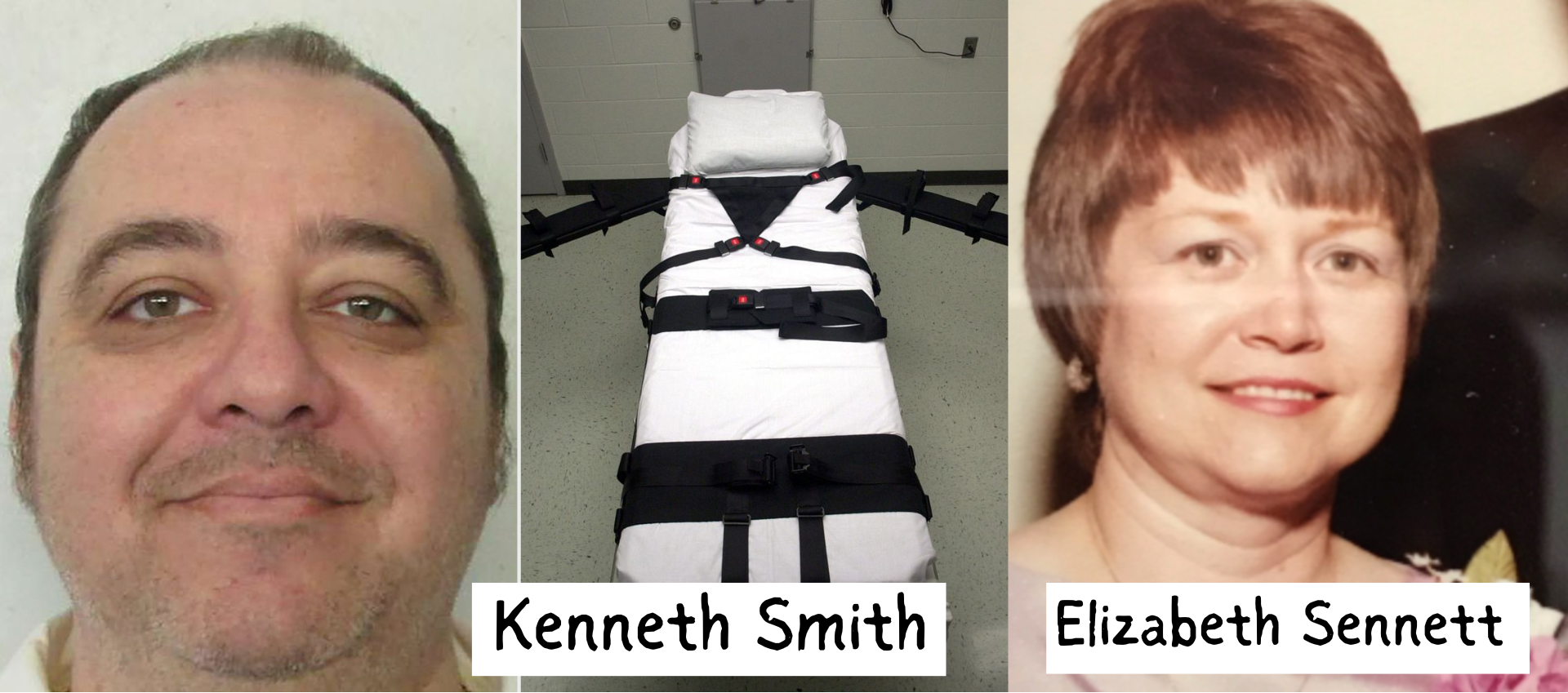On Jan. 25th, 2024 at 8:25 p.m., Kenneth Eugene Smith was killed by nitrogen asphyxiation — a previously untested method of execution — at the William C. Holman Correctional Facility in Alabama. Though 11 out of 12 jurors voted for him to be sentenced to life in prison in 1996, Judge N. Pride Tompkins decided to overrule their decision and condemn him to death. According to the Death Penalty Information Center, on Nov. 17th, 2022, Smith spent four hours strapped to a gurney while the state prosecutors attempted an execution issued by a federal appeals court. His execution team repeatedly failed to set the intravenous line intended to kill him until prison officials called off the botched attempts.
Supreme Court Justice Sonia Sotomayor dissented, stating: “Having failed to kill Smith on its first attempt, Alabama has selected him as its ‘guinea pig’ to test a method of execution never attempted before. The world is watching.”
Though the state affirmed that it was going to be a quick, painless, and peaceful death, many witnesses of the execution had a lot to say against this method. Smith’s Spiritual Advisor, Reverend Jeff Hood, who had witnessed 4 executions already, told Scripps News, “What I saw last night — it wasn’t just cruel and unusual punishment, it was torture quite frankly. And it’s unbelievable that our country, who goes around the world preaching human rights, could let something like this happen.”
Aligning with the question of human rights, a Queens College student double majoring in Biochemistry and Comparative Literature, Aliyah Ali, spoke to The Knight News: “The complexity relates to the ethical and moral implications the humanities emphasizes and it leads to questions on human rights and justice.”
As testified by Lee Hedgepeth, a media witness, Smith was pronounced dead 32 minutes after the gas began to flow.
According to court documents, Charles Sennett, a minister at the Church of Christ out of Colbert County, devised a plan to kill his wife to claim insurance money in 1988. Kenneth Smith, John Forrest Parker, and Billy Gray Williams were recruited by Charles Sennett to murder his own wife: Elizabeth Dorlene Sennett. Charles Sennett agreed to pay them $1,000 in cash to carry out the job.
On March 18th, 1988 at 8:30 p.m., Smith and Parker started to drive to the Sennetts’ home on Coon Dog Cemetery Road, advised by Charles Sennett that Elizabeth Sennett was going to be alone. They had also been commanded to take anything they wanted from the house to make it seem like a burglary.
They arrived at 9:30 p.m., telling Mrs. Sennett that her husband had sent them to look around the property for the purpose of hunting. After calling Mr. Sennett to verify, she let them look around the property.
Later, they entered the house to use the bathroom. Minutes later, Parker walked up behind Mrs. Sennett and started hitting her with his fist while Smith staged the burglary. Smith testified: “On the way back, John told me that he had stabbed her once in the neck. I never stabbed Mrs. Sennett at all.”
Mr. Sennett reported having ‘discovered’ his dead wife the same day. The coroner testified that Elizabeth had been stabbed eight times in the chest, once on each side of the neck, and had suffered numerous abrasions and cuts.
Approximately one week after the investigation started to focus on him as a suspect, he committed suicide. Billy Gray Williams was sentenced to life in prison and died behind bars in 2020. Parker was executed by lethal injection in 2010.
In regards with the evidence presented, there are different opinions of what should have happened with the criminals. However, Sammy Ali, a Queens College student majoring in Political Science, told The Knight News, “I don’t believe that our government should have the power to decide who lives and who dies.”
Many comments responding to Smith’s death question the news focusing on Smith’s suffering rather than Elizabeth Sennett. To this Rev. Jeff Hood said, “This is not a question about the righteousness of Kenneth Smith, there is no question that he committed a horrible crime. This is a question of the righteousness of us, certainly Kenny Smith again was unrighteous, but who are we to say that we are righteous enough to kill someone … to throw the first stone?”











